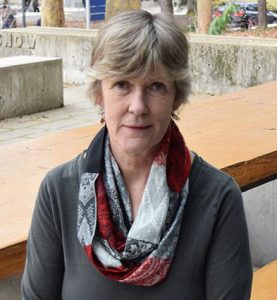Two members of the Faculty of Medicine, Mark Tyndall and Jane Buxton, are leading initiatives to directly and quickly reduce the toll inflicted by drug overdoses in British Columbia.
Mark Tyndall, Professor in the School of Population and Public Health and Director of the B.C. Centre for Disease Control (BCCDC), will lead a federally-funded pilot project in Vancouver and Victoria to provide hydromorphone pills to registered people at supportive housing units or supervised self-injection facilities. The goal is prevent people from buying and using illicit opioids, which often are laced with fentanyl.
The project is supported by Health Canada’s Substance Use and Addictions Program, which provides about $26 million annually to address substance use problems. The project will start with about 200 people, with the goal of expanding it. Recipients will probably be required to consume the pill on-site at first, but might eventually be allowed to take the pills home.
Dr. Tyndall told the Globe and Mail that he doesn’t expect recipients to give away or sell the pills, since they will need it for themselves, but he doesn’t consider it a problem if diversion does happen.
“Then at least the person who received them would not be overdosing,” he told the newspaper. “Everyone must remember that it is very easy to buy drugs on the street right now so there is no way that diversion would make things worse.”
Jane Buxton, a Professor in the School of Population and Public Health and the harm reduction lead for the BCCDC, has coordinated the distribution of take-home naloxone kits through 220 community pharmacies.
About 1,900 kits, which reverse life-threatening respiratory depression following an overdose, will be available for free to people who use opioids or are likely to witness an overdose. Pharmacists also will provide training in recognizing overdoses and using the medication. This effort, which includes London Drugs, Save-on-Foods and independent pharmacies, is an expansion of the province’s Take Home Naloxone Program.
“Through this new collaboration, naloxone will now be readily available at more locations, making it easier for people to look out for each other and be safer,” Dr. Buxton said.

